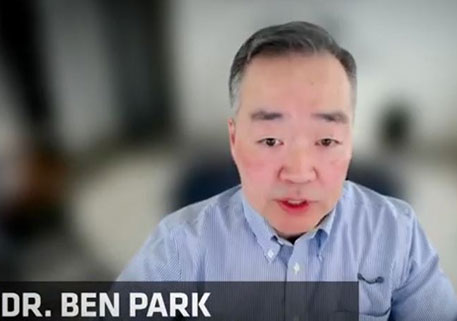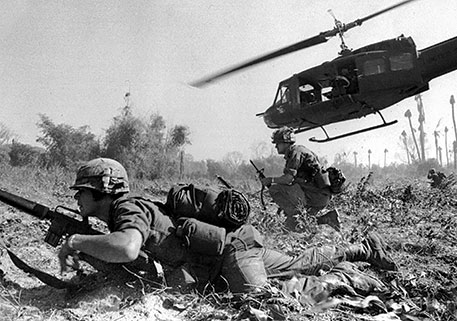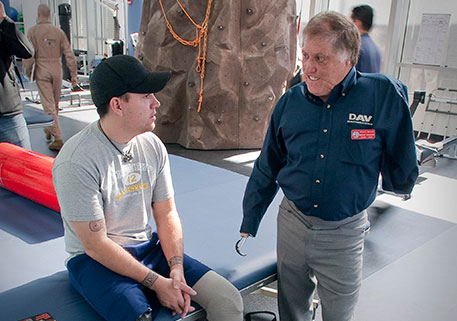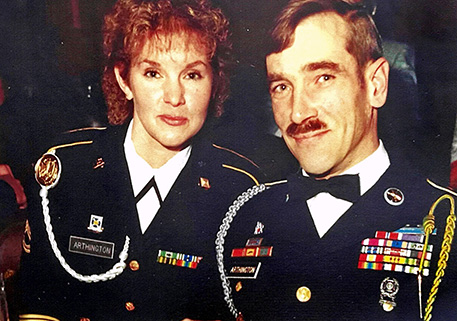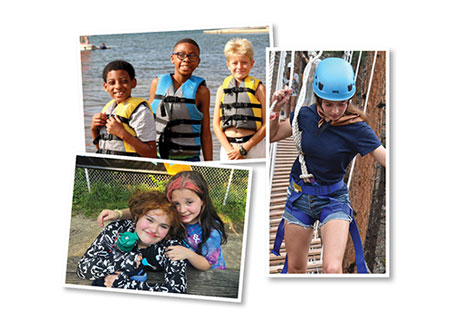DAV’s Disaster Relief Program provides assistance to veterans and families in the aftermath of Hurricanes Harvey, Irma and Maria
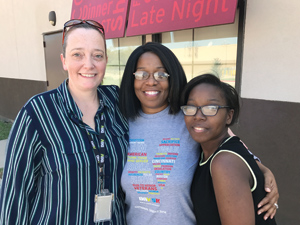
“She has some visual issues,” Sampe explained about her daughter. “We recently found out she’s legally blind, so I wanted her to see the mountains just in case it worsens.”
Perhaps the trip’s precious memories lingered fresh in her thoughts, or her family’s upcoming move to St. Louis weighed on her mind, but Sampe found herself unaware of the disaster about to unfold—a Category 4 hurricane barreling straight toward the coast of Texas.
She only learned of the incoming storm after returning home to Port Arthur, a coastal town 90 miles east of Houston, when a friend told her she was watching “Harvey” on television.
“So, I clicked the remote and started looking for ‘The Steve Harvey Show,’” Sampe admitted of her misunderstanding. “But I found on The Weather Channel that there was a Hurricane Harvey, and I fled.”
Having already evacuated the area during Hurricanes Katrina, Rita and Ike, Sampe was no stranger to evacuating ahead of natural disasters and the devastation they can bring. After packing some family mementos, Sampe and her daughter headed nearly 300 miles inland to Waco to wait out the storm. Unfortunately, they had to wait longer than expected.
“The roads are flooded, the cars are flooded, homes are flooded,” she said. “We can’t go back to our homes or even see if we still have one. We’re just stuck in a hotel room, waiting, until FEMA tells us we can go back.”
Finding herself displaced with a disabled daughter for an unknown amount of time, and with her husband—a retired Army veteran—already in St. Louis working his new postal service job, Sampe needed assistance. That’s when she found a DAV disaster response team in Waco.
Made up of DAV national service officers, the team issued Sampe and her daughter a disaster relief grant for food, clothing and temporary shelter on account of their status as dependent family members of a veteran.
For Sampe, the assistance meant peace of mind during a troubling and challenging time.
“Vets help vets, right?” said Jennifer Kellogg, a national service officer supervisor. “We’re the ones that stand up and go toward the danger and disaster to help our fellow countrymen. That’s what we do.”
“We were pulling young babies and children out of homes,” said DAV Department of Texas Commander Robert Delgado, who led localized relief efforts in Houston in the immediate aftermath of the storm.
While Delgado expected the flooding and downed trees and powerlines, dealing with alligators, snakes and raw sewage was an unforeseen hazard. Regardless, he and members of his local Chapter 233 banded together to use their personal vehicles to get veterans to the VA regional office.
“We have a deep belief in taking care of one another,” said Delgado. “It doesn’t matter about race, religion, creed or whatever. We care about our neighbors. And even if it puts us at risk, we’ll take that risk to ensure their safety.”
Disaster response teams have handed out more than 880 drafts and supply kits throughout Texas since Harvey made landfall, with additional assistance also being provided in St. Petersburg, Florida; Decatur, Georgia; and San Juan, Puerto Rico, in the aftermath of Hurricanes Irma and Maria. DAV has provided nearly 1,510 drafts totaling more than $573,000 to veterans and their families across the Gulf Coast and Puerto Rico in the wake of these destructive hurricanes—more than half of the $866,000 the organization has provided nationwide in 2017.
“It’s us doing what we’re supposed to do. We’re keeping the promise,” said Delgado. “It’s not just filing claims. When we see veterans in need, we’re going to take care of them and get them everything we can to get them back on their feet.”
For that, Sampe said she and her husband are greatly appreciative.
“He’s a lifetime member of DAV.” Sampe explained. “He was very proud and said, ‘This is what they do—we are all one family.’”
After a pause and a smile she added, “My family is away, but I’ve been adopted by DAV.”

